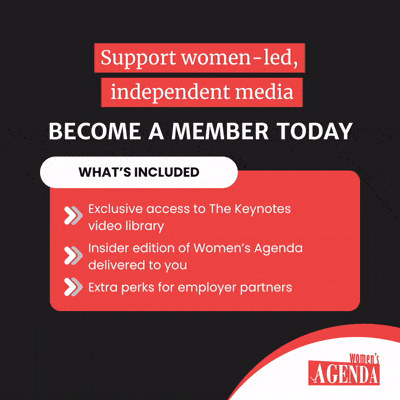Perhaps they have made jokes or engaged in banter in the past that was not entirely appropriate? How would they know if they have made women around them uncomfortable?
My response is always the same. Respecting the personal space and dignity of co-workers is not an impossibly difficult task at which all men are doomed to fail. To the contrary, it’s quite simple.
It’s a proposition that, in all seriousness, pre-schoolers aren’t just taught but tend to begin to master even before their fifth birthday.
The questions anyone worried about being named as a #MeToo offender need to consider are these:
Are you a creep? Do you touch women without being invited? Do you say things to make women squirm? Have you forced a woman to engage in sexual activity with you?
My suspicion is that the men who need not harbour fear of a #MeToo reprisal are perhaps not the ones who are turning their minds to the women around them.
#MeToo is not an avalanche of women confessing to having been offended by an ill-conceived joke or asked out on a date by a colleague. Rather it is an outpouring from women who have been violated and there is a chasm between that and the former.
That’s not to say a culture in which inappropriate comments thrive isn’t problematic. A culture like that certainly can act as a rich fertiliser for #MeToo type behaviour but I am wholly unconvinced that #MeToo-type behaviour occurs unknowingly, or by accident.
It is not a net that will unwittingly capture scores of men who made a bad joke.
Violating someone is not a mishap that you just happen to subject another human being to. You either perpetrate it or you don’t, so to the men that I have spoken with I have said this.
If you have ever violated a woman – in any context – you do have grounds to be afraid. You also have grounds to feel gravely ashamed, to seriously consider the way you behave and to change it.
If you haven’t, though, you need not fear reprisal. What you can do is turn your mind to the men around you.
Not to rescue your female colleagues but to help create a culture in which women don’t need rescuing. A culture in which men and women are merely respected as a matter of course.
There are important things men can do and say to support the women in their lives. #EmpowerMen & #EmpowerWomen https://t.co/vOgoTOghaJ
— Empower Men (@empowermenau) June 7, 2018
In January this year in Michael Kimmel’s cover story for Harvard Business Review he wrote this:
“I’ll make one assertion here, which is backed by my experiences working with companies to promote gender equality over several decades: The overwhelming majority of men do not want to be jerks. We don’t want to make women uncomfortable and don’t want to say things that are offensive.”
But while that is the case Kimmel knows to ring true in many instances he recognises that cultural acquiescence has kept those same men quiet in the face of harassment which has allowed it to flourish.
When asking why men get away with it, Kimmel wrote:
“Sexual harassment persists because of three factors: the sense of entitlement that some men feel toward the women they work with; the presumption that women won’t report it or fight back; and the presumed support — even tacit support in the form of not calling out bad behaviour — of other men.”
How do men get away with it? pic.twitter.com/c6va00qmJr
— Emma Alberici (@albericie) June 7, 2018
When men remain silent, it can be taken as a sign that they agree with the harasser or that they think the behaviour is acceptable.
“Men are complicit in a culture that enables sexual harassment, so it is up to us to actively, volubly speak up and let the perpetrators know that we are not OK with what they do,” Kimmel says.
He suggests a productive outlet for any man who is interested in creating respectful workplaces is to actively make change. To directly challenge sexist behaviour, to call it out, to find and make allies who will do the same.
“After decades of accepting sexual harassment as the status quo, we have to take some of the weight off women’s shoulders,” Kimmel writes. “It’s simply not their responsibility alone to talk about and enforce workplace equality.”
Indeed. If you are a man who has never violated a woman don’t expend energy worrying about #MeToo. Expend energy taking on the men who have.

